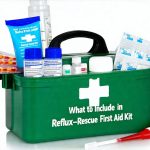Traveling is often synonymous with disruption – disrupted sleep schedules, altered diets, exposure to new environments, and increased stress levels. These disruptions can wreak havoc on our gut microbiome, that complex ecosystem within us responsible for so much more than just digestion. A healthy gut is intrinsically linked to overall wellbeing, impacting immunity, mood, energy levels, and even cognitive function. When we travel, maintaining this delicate balance becomes a conscious effort. Many travelers experience digestive issues like bloating, constipation, or diarrhea simply due to changes in routine, but proactive preparation can significantly minimize these problems and ensure you enjoy your adventures without discomfort. This article will guide you through building a comprehensive travel kit focused on supporting gut health while on the go, empowering you to navigate new experiences with a resilient and happy digestive system.
The goal isn’t necessarily about preventing all changes – some degree of microbial adaptation is natural during travel. It’s more about mitigating the extremes and providing your gut with the resources it needs to cope with stress and maintain functionality. A thoughtfully curated kit acknowledges that travel inherently involves risk factors for gut health, but equips you to proactively address them. Think of it as a preventative measure, bolstering your body’s natural defenses rather than simply reacting to problems as they arise. This approach allows you to fully immerse yourself in the experience without being sidelined by digestive distress, leading to a more enjoyable and fulfilling journey.
Building Your Core Gut Health Travel Kit
The foundation of any good travel kit is preventative care. It’s about anticipating potential issues and having solutions readily available. This isn’t about packing an entire pharmacy; it’s about strategically choosing items that support your gut microbiome and digestive function. Prioritize portability and practicality – you want a kit that doesn’t weigh you down or take up excessive space. A small, dedicated pouch or compartment within your luggage is ideal. The core components will focus on replenishing beneficial bacteria, aiding digestion, and soothing potential discomfort.
The first line of defense is often probiotics. These live microorganisms can help repopulate the gut with beneficial strains that may be diminished by travel-related stress and dietary changes. Look for a probiotic specifically formulated for travel if possible – these often contain strains known to withstand harsh conditions and support immune function. Consider options that don’t require refrigeration, or those packaged in blister packs for single-dose convenience. Prebiotics, the food source for probiotics, are equally important. These fibers nourish beneficial bacteria already present in your gut, encouraging their growth and activity. Prebiotic supplements can be included, or you can focus on incorporating prebiotic-rich foods into your diet while traveling (more on that later). Understanding [how to read food labels for gut health] will help with this.
Beyond probiotics and prebiotics, digestive enzymes play a crucial role. Travel often involves unfamiliar cuisines and potentially irritating food combinations. Digestive enzymes help break down carbohydrates, proteins, and fats, reducing the burden on your digestive system and minimizing bloating or discomfort. Finally, consider including some natural remedies for soothing occasional digestive upset – things like ginger chews to combat nausea, peppermint tea bags for bloating, or a gentle herbal remedy for constipation (always consult with a healthcare professional before using any new supplements). Remember that this kit is personalized; adjust the contents based on your individual needs and sensitivities. If you’re prone to sensitivities, [how to test for sensitivities without a lab] might be helpful.
Navigating Dietary Changes & Food Safety
One of the biggest challenges to gut health while traveling is dietary disruption. We often deviate from our normal eating patterns, encountering new foods and potentially less-than-ideal hygiene standards. The key here isn’t necessarily avoiding all unfamiliar foods – it’s about making informed choices and taking precautions. This involves being mindful of food safety, prioritizing whole foods whenever possible, and strategically incorporating gut-friendly options into your meals.
When exploring street food or local markets (which are often a highlight of travel!), assess the hygiene standards carefully. Look for vendors with clean stalls, freshly prepared food, and high turnover rates – this indicates that food is likely to be fresh and properly handled. Avoid anything that has been sitting out for extended periods or appears questionable in any way. Be cautious with tap water and ice cubes, opting for bottled water instead, especially in regions where water quality is uncertain. A simple rule of thumb: if in doubt, leave it out.
Focus on incorporating fermented foods into your diet whenever possible – yogurt (if you tolerate dairy), kefir, sauerkraut, kimchi, or miso are all excellent sources of probiotics. These not only provide beneficial bacteria but also contribute to overall gut diversity. Similarly, prioritize fiber-rich foods like fruits, vegetables, and whole grains to nourish your existing microbiome. Even small changes can make a big difference – adding a side salad to a meal, choosing whole-grain bread over white bread, or snacking on an apple instead of processed snacks are all positive steps you can take. Building a [rotation diet for safety] can be useful when reintroducing foods after travel.
Supporting Your Gut During Travel Stress
Travel stress is unavoidable – flight delays, lost luggage, unfamiliar surroundings, and the sheer exertion of navigating new environments all contribute to increased cortisol levels. Chronic stress negatively impacts gut health by disrupting the microbiome, reducing digestive function, and weakening the immune system. Mitigating travel stress is therefore an integral part of maintaining gut wellbeing on the go.
- Prioritize sleep: This may be challenging during travel, but aim for as much rest as possible. Bring earplugs, a sleep mask, or other tools to help create a comfortable sleeping environment.
- Stay hydrated: Dehydration exacerbates stress and can lead to constipation. Carry a reusable water bottle and sip on it throughout the day.
- Incorporate mindfulness practices: Even short bursts of meditation, deep breathing exercises, or mindful movement (like yoga) can help reduce stress levels. There are numerous apps available with guided meditations specifically designed for travel.
- Maintain some routine: Despite the disruptions, try to maintain some semblance of your normal routine – whether it’s exercising, journaling, or listening to music. This provides a sense of normalcy and stability amidst change. Managing [gut health under stress] is key to resilience.
Dealing With Common Travel Digestive Issues
Even with the best preparation, digestive issues can still occur during travel. Having a plan for addressing these problems is essential. Don’t panic – most common travel-related digestive upset resolves on its own within a few days. However, knowing how to manage symptoms can significantly improve your comfort and prevent them from escalating.
- Diarrhea: Stay hydrated with electrolyte solutions or oral rehydration salts (ORS) to replace fluids lost through diarrhea. Avoid dairy products, greasy foods, and caffeine until symptoms subside. Consider a probiotic specifically formulated for restoring gut balance after diarrhea.
- Constipation: Increase your fiber intake gradually by incorporating fruits, vegetables, and whole grains into your diet. Stay well-hydrated and engage in gentle physical activity. A magnesium supplement can also help stimulate bowel movements (consult with a healthcare professional before use).
- Bloating & Gas: Avoid carbonated beverages, processed foods, and artificial sweeteners. Sip on peppermint tea or ginger tea to soothe digestive discomfort. Consider taking a digestive enzyme supplement with meals.
Beyond the Kit: Long-Term Gut Health Strategies
The travel kit is a short-term solution, but maintaining gut health requires a long-term commitment. When you return home, continue to prioritize practices that support your microbiome and digestion. This includes eating a diverse diet rich in whole foods, managing stress levels, getting adequate sleep, and staying hydrated. Consider incorporating fermented foods into your regular diet – sauerkraut, kimchi, yogurt, or kefir can all contribute to a healthy gut ecosystem.
Regular physical activity also plays a role – exercise promotes gut motility and reduces inflammation. Finally, be mindful of antibiotic use; while sometimes necessary, antibiotics can disrupt the microbiome. If you must take antibiotics, consider supplementing with probiotics during and after treatment to help restore gut balance. [How to train your gut for better tolerance] will improve long-term resilience. Remember that gut health is an ongoing journey, not a destination. By incorporating these strategies into your lifestyle, you can ensure a resilient and happy digestive system – both at home and on the road. Planning ahead with [a daily routine that supports liver health] also contributes to overall wellbeing. And before you go, consider [how to handle travel when your gut hates surprises].


















